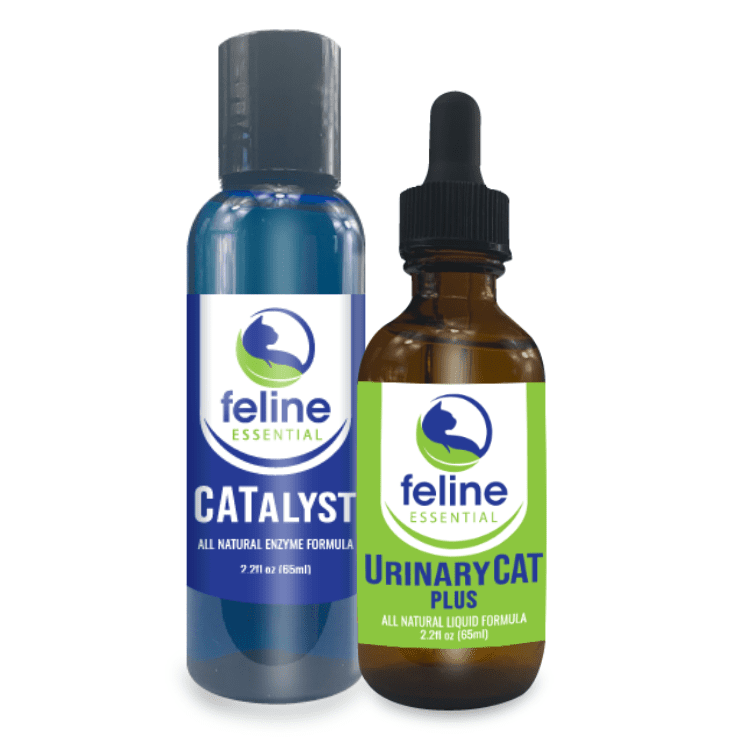Urinary Tract Support Kit
The Urinary Tract Support Kit promotes and maintains the urinary tract health of your cat while supporting immune functions for cats of all ages! The antioxidant and anti-inflammatory properties of vitamin C help to relieve the pain of a cat’s bladder infection while strengthening the bladder lining and fighting off the bad bacteria in the urinary tract. UrinaryCat Plus works naturally to help acidify the pH of your cats urine – inhibiting future UTI issues and struvite stones or crystals. CATalyst helps improve immunity function and supports quicker healing processes.
100% MONEY BACK GUARANTEE!
Purrfect for:
- UTI Support
- Bladder Stones Support
- Urine Crystals Support (Not for oxalate crystals – see our Oxy-Cat product if cat’s urine should be alkalized)
- Bladder Inflammation Support
- Kidney Support
This all-natural Urinary Tract Support Kit is designed to promote a healthy urinary tract for your cat.
Read below for more information.
Original price was: $43.95.$39.95Current price is: $39.95.
You Might Also Be Interested In ...
Should Your Cat Be On A Prescription Diet?
You take your cat to the vet for an ailment he's dealing with and they recommend that you feed him a prescription diet. Do you know what's in this prescription food? The term prescription is defined as "a written direction or order for the preparing and use of a...
How To Check Your Cat’s Urine pH
Because urinary infections are so common for kitties, it's important that we check our cat's urine pH at home. Cats are stoic beings, so we often won't know that they are in pain from a urinary issue until it's bad. The pain that a kitty experiences when they cannot...
Help! My Cat Keeps Having Urinary Problems
If your cat keeps having urinary troubles, it's time to start looking for the root of the problem. Urinary issues are the number one reason cat parents contact us, so we dove deep to find some real help. We spoke with veterinarians, both holistic and conventional, and...
